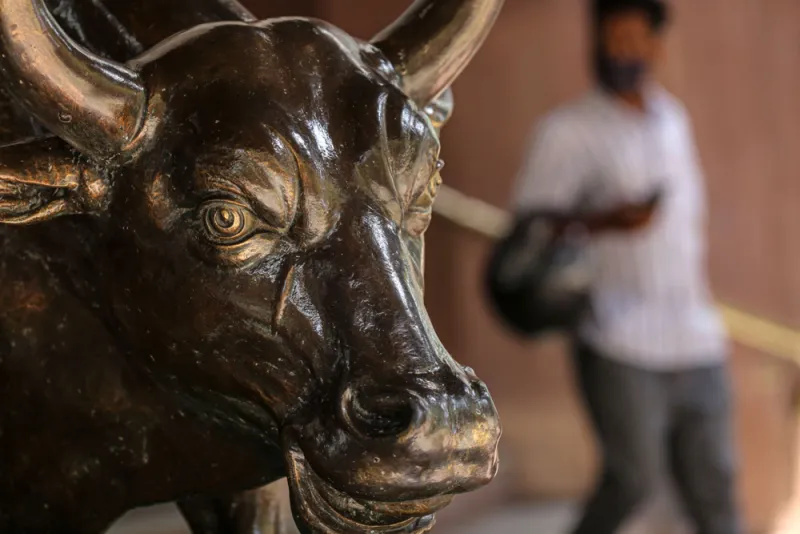The first quarter of 2021 may go down in markets as “a memorable one we’d like to forget,” as Kingsford Capital Management’s Mike Wilkins puts it.
But the veteran short seller, whose Kingsford Alpha Capture Fund fell 23.05 percent during the first three months of the year, has instead memorialized the era in a sardonic 28-page letter to investors that details the seeming insanity that ruled the quarter, starting even before GameStop and going all the way to the collapse of Bill Hwang’s Archegos Capital Management.
In between there’s plenty of grist for Wilkins’ mill — from special-purpose acquisition companies to pot stocks. And, he warned, there’s more to come.
“In our role as a wizened witness tree, we have been asked repeatedly over the past year, ‘Is this worse than the dot-com bubble?’” he wrote. “We have tried to be cautious when answering, and there are many ways to compare the two eras, but now our answer is yes, it is worse. The main difference: the anger.”
While the story of GameStop (which Kingsford was not short) is well known, Wilkins pointed to some lesser known craziness. For example, he talked of “a number of well-known, hoary liars [rising] from the dead in 2020 on the back of the growing retail fervor” and told stories of mistaken identity trades that sent certain stocks soaring.
“A number of mistaken identity trades were based on misreading the musings of Elon Musk, the CEO of Tesla and the one billionaire you could trust,” Wilkins wrote, tongue firmly in cheek. He noted that Signal Advance “surged nearly 10-fold from $7 to $70 in 30 minutes… after Musk tweeted, ‘use Signal.’” (Musk was referring to the encrypted messaging app.) Even after the error was explained, the stock did not retreat, Wilkins said.
And while much has been written about the new retail investors that glommed onto Robinhood to trade meme stocks to the skies, Wilkins noted that, “in January, the most clicked FAQ on the rapidly growing retail stock trading app Robinhood’s ‘Robinhood Learn’ was ‘What is the stock market?’”
These new investors saw short sellers as “the enemy,” according to Wilkins. “Short sellers were fat cats using their lies and fat cat control of the deep state to drive down stock prices and keep down the little guy: the little guy who just wanted his fair chance to double his money buying out-of-the-money call options expiring in a week on a stock some stranger had pitched him in less than 280 characters,” he quipped.
As for what it was like to be a short seller in such an environment, the hedge fund manager wrote, “It felt like scenes in old war movies where surviving airmen, back after being shellacked in a quick-cut dog fight, are sitting in a classroom having to stomach commanders with charts and pointers calmly plotting the next sortie.”
The mania subsided as the quarter came to an end, but even so, Wilkins admitted that “we were having to talk ourselves out of making too much out of conspiracy-like patterns,” noting that prominent social media figures Musk, Chamath Palihapitiya, and Gali — Youtuber Galileo Russell — all “liked GameStop.”
By that time, he noted that “the Goldman Sachs index of most-shorted stocks, though down from the highs, [had] gained 33 percent, a signal that we were still not out of the woods.”
While the bulk of Wilkins’ letter looked back in great detail, he noted that the rebalancing of the Russell 2000 at the end of June “is going to be a doozy.”
Wilkins is predicting a 30 percent turnover. “The rebalance is done by ranking U.S. stocks almost solely by market capitalization,” he explained, and “since last June’s rebalance, many penny stock silverfish have grown their market values substantially.”
“Greater fools will arrive in late June,” he warned, “wallets dangling from back pockets.”
Kingsford, which is closed to new investors, is one of the oldest short-biased hedge funds. It began the second quarter with $385 million under management, according to the letter. The vast bulk — $375 million — is in separately managed accounts.
The Kingsford Alpha Capture Master Fund, which is market neutral, runs $10 million.







